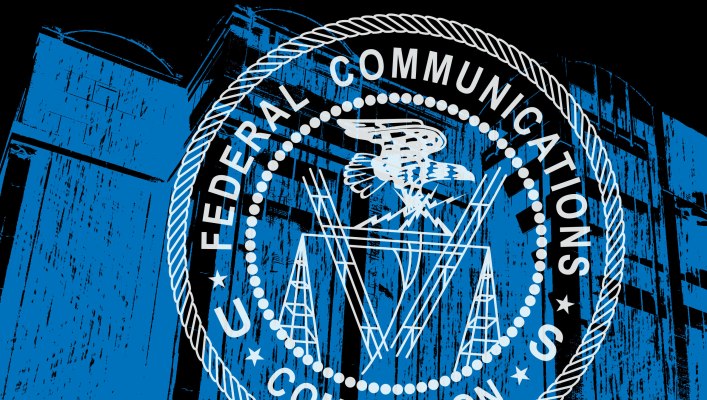Federal Communications Commission Chairman Ajit Pai today made good on his long-standing pledge to tackle regulations established in the last administration designed to protect the distribution of internet content.
On Tuesday, Pai distributed to the other commissioners at the FCC a draft of his suggested rule changes under the auspices of the “Restoring Internet Freedom Order.”
The move sets up a December 14 vote at the FCC that could have broad ramifications for the entire internet. Under the rules established by the Obama administration, internet providers are required to provide open access to their networks for all digital content.
The new rules would give network providers like Comcast, AT&T and Verizon (which owns Oath, which owns TechCrunch), sweeping new power to throttle distribution of certain content… and conversely charge more for better access. In the new order, Pai argues that such providers don’t “transmit” data, and thus do not fall under the FCC’s authority — a view of the internet’s infrastructure that few experts agree with.
Pai has argued that the regulations imposed by the Obama administration “depressed investment in building and expanding broadband networks and deterred innovation.” The truth of this assertion has been roundly questioned by experts and lawmakers, who also have pointed out that it is an extremely narrow metric by which to measure the success of the existing rules.
The new rules would only require that internet providers “be transparent about their practices so that consumers can buy the service plan that’s best for them and entrepreneurs and other small businesses can have the technical information they need to innovate.”
Additional regulatory oversight would be handed over to the Federal Trade Commission under Pai’s new rulemaking, which had authority over some of these matters before the 2015 order.
“Notably, my proposal will put the federal government’s most experienced privacy cop, the FTC, back on the beat to protect consumers’ online privacy,” Pai wrote. The FTC, however, is unable to write strong, preemptive net neutrality rules like those in the 2015 order.
No mention was made of the historic numbers of comments filed on the new order, the vast majority of which supported existing net neutrality rules.
Net neutrality prevents internet service providers from prioritizing data for businesses and other organizations that they favor or that pay more. The rules keep the internet open, free and unrestricted, preventing ISPs from becoming gatekeepers that can control and manipulate what people access on the internet.
“Internet rights are civil rights,” said Jay Stanley, American Civil Liberties Union senior policy analyst. “Gutting net neutrality will have a devastating effect on free speech online. Without it, gateway corporations like Comcast, Verizon, and AT&T will have too much power to mess with the free flow of information.”
Ronald Newman, ACLU director of strategic initiatives, said, “In a world without net neutrality, activists may lose an essential platform to organize and fight for change, and small organizations may never get a fair shot to grow and thrive. Congress must stop Chairman Pai’s plan in its tracks and ensure that net neutrality remains the law of the land.”
“Today the FCC has threatened to end the internet as we know it,” said Senator Michael Schatz (D-HI). “If adopted, the FCC’s plan will change the way every American gets information, watches movies, listens to music, conducts business, and talks to their families. By repealing basic net neutrality protections, the FCC is handing over full control of the internet to providers, leaving the American people with fewer choices and less access.”
Here’s the full statement below:
For almost twenty years, the Internet thrived under the light-touch regulatory approach established by President Clinton and a Republican Congress. This bipartisan framework led the private sector to invest $1.5 trillion building communications networks throughout the United States. And it gave us an Internet economy that became the envy of the world.
But in 2015, the prior FCC bowed to pressure from President Obama. On a party-line vote, it imposed heavy-handed, utility-style regulations upon the Internet. That decision was a mistake. It’s depressed investment in building and expanding broadband networks and deterred innovation.
Today, I have shared with my colleagues a draft order that would abandon this failed approach and return to the longstanding consensus that served consumers well for decades. Under my proposal, the federal government will stop micromanaging the Internet. Instead, the FCC would simply require Internet service providers to be transparent about their practices so that consumers can buy the service plan that’s best for them and entrepreneurs and other small businesses can have the technical information they need to innovate.
Additionally, as a result of my proposal, the Federal Trade Commission will once again be able to police ISPs, protect consumers, and promote competition, just as it did before 2015. Notably, my proposal will put the federal government’s most experienced privacy cop, the FTC, back on the beat to protect consumers’ online privacy.
Speaking of transparency, when the prior FCC adopted President Obama’s heavy-handed Internet regulations, it refused to let the American people see that plan until weeks after the FCC’s vote. This time, it’ll be different. Specifically, I will publicly release my proposal to restore Internet freedom tomorrow—more than three weeks before the Commission’s December 14 vote.
Working with my colleagues, I look forward to returning to the light-touch, market-based framework that unleashed the digital revolution and benefited consumers here and around the world.
For a counterpoint to Pai’s puffery, check out this piece from John Oliver:

